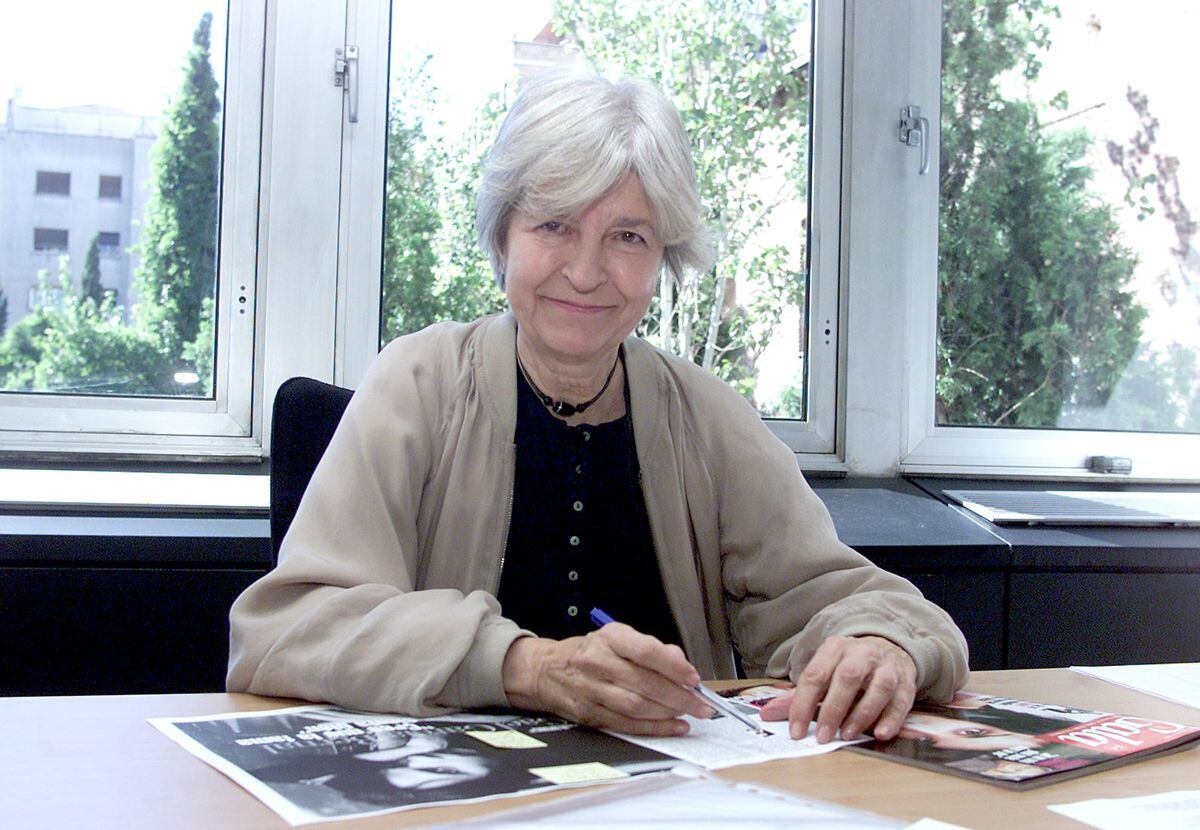The recent death in Madrid of Milagros Valdés Domínguez-Macaya, at the age of 81, leaves a singular gap in the history of the Spanish cultural press.
In it, she stood out as an innovator of children's programming and as editor-director of magazines and cultural media critical of Franco's regime in the last phase of the regime.
Born in Madrid in November 1939 into a wealthy Andalusian family linked to Carlism, Milagros was the daughter of Joaquín Valdés Sancho, first director of the newspaper
El Alcázar
and future owner of Gráficas Espejo, owner of the headlines
Díez Minutos
and
El Mediterráneo
. among other.
More information
Screens don't stun children
As a child, she studied at the Asunción College in Madrid, to later begin a career in Law, going against the usual behavior of young Spanish women of her age and social position, relegated to the domestic sphere.
Before completing her studies, she married Alfredo Zavala, a member of a family of high officials also linked to the newsprint sector.
She and her husband had two daughters and two sons.
Immersed in the world of the media, openly opposed to the reactionary social conventions of the Madrid upper bourgeoisie, she was a member of the clandestine Communist Party of Spain.
At the Miguel Angel University Institute in Boston, she would graduate in Psychology, studies from which she extracted a powerful transformative impulse from childhood education, which she would apply to her subsequent professional tasks.
Soon, she joined Spanish Television, at the time directed by Juan José Rosón.
There, Milagros Valdés aired the children's program
Un globo, dos globos, tres globos...
which completely modified the traditional formats and content of children's television programming;
Until then, they had been marked by paternalism and passivity.
In a transformative sense, she gave the green light to the broadcast of the Swedish series
Pippi Longstocking
, a true innovation in children's leisure, in a progressive key related to the self-construction of children's individuality and sociability.
Her career at TVE was cut short by her joining the actresses' and actors' strike in the mid-1970s which, despite the adverse repressive conditions imposed by Franco, paralyzed the entertainment world for the first time.
After his expulsion from state television due to his political and solidarity activism, from his father's publishing company he would transform the economic-political magazine
El Mediterráneo
into a large-format cultural publication, with very careful printing and select contents, along the lines of the great European cultural magazines, notably French, although designed by her from an innovative and advanced conception.
In
The Cultural European
,
glamor
would acquire a dimension that surpasses the old customs in force and the obsolete lifestyles in Franco's Spain at that time.
Some time later, Milagros Valdés would join the Editorial Board of G&J, where she carried out an enormous managerial task as editor and supervisor of numerous publications.
His work was the magazine
Gala
, which he directed and from which he proposed to dispute the hegemony of the so-called “magazines of the heart” to the magazine
Hola
, whose owner successfully litigated against it, its potential rival, since it incorporated different conceptions about this. journalistic genre.
All of this occurred in the heat of the profound sociopolitical changes registered within Spanish society thanks to the worker, student and neighborhood mobilizations that preluded the Transition from dictatorship to democracy.
After his separation from Alfredo Zavala, the writer and editor Alberto Méndez, author of
The Blind Sunflowers
, joined his life, a novel that acquired extraordinary publishing success after the death of its author.
An unrepentant reader, with deep ecological sensitivity and a high sense of friendship, according to her friend and collaborator, journalist Mara Malibrán, who compares her to Carmen Díez de Rivera, Milagros Valdés found herself endowed with a sense of breaking social inertia and conventions.
She was part of a small group of women from the enlightened upper bourgeoisie of Madrid who, bravely, made a risky ideological and professional commitment to democracy and female emancipation, paying a high personal price for it.
His death occurred in Madrid on January 13, after suffering from Alzheimer's for the last five years of his life.

